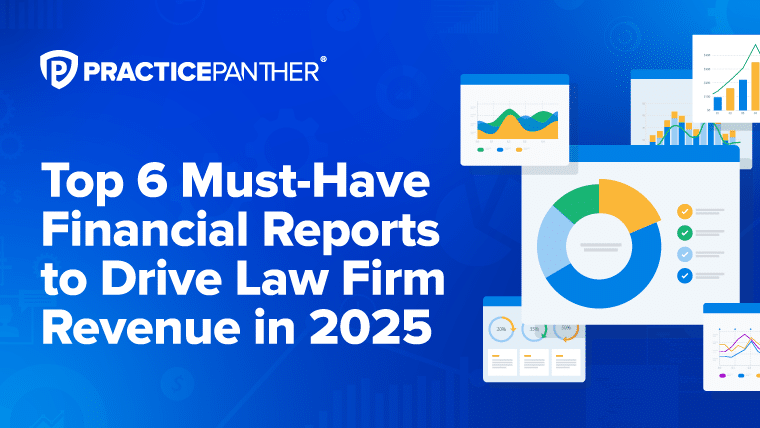In a world where “bigger is better” often dominates the narrative, especially within the legal industry, small law firms and solo practitioners find themselves at a crossroads. The notion that sheer size and financial clout are the only paths to success in legal battles is not just misleading; it overlooks the agility, expertise, and personalized service that smaller firms bring to the table.
Yet, to harness these strengths fully and compete on an equal footing, small firms must leverage the right resources — among which legal billing software plays a crucial role. This technology is a strategic asset that can transform how small practices operate, ensuring they maximize efficiency, maintain financial health, and deliver unmatched client service.
This blog is a guide for small law firms on legal billing software, highlighting how it can level the playing field against larger competitors. With the right software, small firms not only sustain but also excel, demonstrating that success in the legal industry is not a matter of size, but of strategy, skill, and the smart use of technology.

What Is Time and Billing Software?
Time and billing software for lawyers is a specialized application that assists legal professionals in tracking their billable hours, managing client accounts, and simplifying the invoicing process. For lawyers and law firms, particularly those managing smaller practices, this software stands as a bridge between traditional practice management and the modern demands of client billing.
Precision in tracking time and managing billing processes is necessary for meeting ethical standards as well as growing your business. Legal billing software caters specifically to this need by offering features that enable lawyers to capture every billable moment with accuracy. Whether attending court sessions, consulting with clients, or doing research, legal billing software makes it easy to record every moment.
Small law firms stand to gain significantly from implementing time and billing software. These benefits include:
- Increased Accuracy: Manual time tracking and billing — whether you’re using sticky notes or Excel spreadsheets — are prone to errors. These processes can lead to disputes with clients and lost revenue. Legal billing software minimizes these risks by automating much of the process, ensuring that billing is both accurate and transparent.
- Improved Time Management: Lawyers at small firms often wear multiple hats, juggling case work with administrative duties. Time and billing software helps prioritize tasks and manage time more effectively, contributing to better overall efficiency.
- Happier Clients: When clients receive accurate, timely invoices and see that you are available and responsive, their trust in your firm grows. Satisfied clients are more likely to return and refer others, contributing to your firm’s growth and reputation.
As you can see, firms that embrace this technology enjoy a more efficient operation that aligns with the expectations of modern legal clients, setting a foundation for growth and success in a competitive environment.
How Do I Choose a Billing Software?
Choosing the right billing software for a small law firm involves more than picking the most popular option. It’s about finding a solution that aligns with the firm’s specific needs, simplifies billing processes, and upholds the highest security standards.
For example, here are some top considerations you should have when selecting billing software:
- The Features Are Comprehensive: Look for software that offers comprehensive functionality to manage the entire billing cycle efficiently. This includes time tracking, invoice generation, and payment processing. Even better, choose software where billing is only one component of a broader practice management system, which ensures a better workflow for your firm.
- Integrations Are a Perk, Not a Necessity: Many legal software companies will advertise how they have tons of integrations you can connect with your legal software. But for small law firms (and really, any size law firm), this simply isn’t feasible. The costs quickly skyrocket, and what once seemed like a perk quickly becomes a drain on your budget. Instead, look for an all-in-one billing and practice management solution where you pay a single, straightforward cost to get everything you need.
- The Interface Is User-Friendly: The software should be intuitive and easy to navigate. A straightforward interface reduces the time spent on training and increases the likelihood of widespread adoption within your firm.
- The Cost Fits Your Budget: Evaluate the software’s pricing structure to ensure it provides value for money. Many providers offer subscription plans on pricing tiers, allowing firms to start on a lower tier and then level up their plan as their firm grows and needs additional features.
- Strong Security Features: Given the sensitive nature of legal data, robust security measures are non-negotiable. Look for law firm data encryption, role-based permission controls, and data backup capabilities, at a bare minimum.
- Compliance With Legal Industry Standards: The software you choose must comply with legal industry standards, safeguarding your firm against breaches of client confidentiality and ensuring adherence to regulatory requirements.
- Free Trials: If the software you’re looking at doesn’t offer a free trial, it’s likely not a software you want to use. Free trials are an industry standard, allowing you to engage with a software firsthand to assess its suitability for your firm’s specific needs.
Take the above list and use it as a checklist as you evaluate any legal time and billing software for small business.

How Do You Create a Billing System With Software?
Creating a billing system with software involves selecting the right product and tailoring it to fit your firm’s specific needs. Generally, the process will go something like the following:
- Choose the Right Software: Start with researching and identifying software that fits your firm’s size, budget, and needs. It should offer flexibility, scalability, and support for the billing tasks you handle most frequently.
- Initial Setup: After choosing your software, the first step is setting up your firm’s basic information. This includes things like firm details, user accounts for each team member, and your billing rates. If you choose PracticePanther for your legal software needs, you’ll get a dedicated account manager that will guide you through each step of setup and beyond.
- Customize Your Invoices: Customize your legal invoice templates to include your firm’s logo, payment terms, and any other information relevant to your clients and legal services.
- Integrate with Other Systems, if Needed: Connect the billing software with other systems you use, such as your email account or data storage system.
- Input Client Information: Add client details into the system. If you have a current spreadsheet or system in place for this data, you will need to move it over to your newly adopted software. PracticePanther has an expert data migration team that will happily handle this whole step for you.
- Train Your Team: Provide training sessions for your staff. PracticePanther makes this easy with a large library of training resources and attentive customer support as you learn your way around your new system. Ensure everyone understands how to use the software effectively for their specific roles within the firm.
Implementing a new billing system in a small law firm requires careful planning and attention to detail, but the right software should make the whole process easy.
How Do I Send a Legal Invoice?
You can easily generate, review, and send a legal invoice using legal billing software with only a few clicks. Here’s a breakdown of how this process works:
1. Enter Billable Hours and Expenses
Input the billable hours and any associated expenses for each client. It’s best to do this as you do the work. Waiting until the end of the day to enter time can cost you up to 15% of your potential billable hours, and waiting until the end of the month can result in a loss of around 50% of your billable hours. PracticePanther allows you to track time concurrently with your work through easy-to-use timers or add time manually when needed.
2. Review and Finalize the Invoice
Before sending, review the invoice for accuracy. PracticePanther offers features to easily adjust entries and ensure the final invoice is clear and correct. To start, users can use the batch billing feature in PracticePanther to generate pre-bills for review. This ensures that both attorneys and billing personnel can scrutinize every detail before finalizing.
You can easily note any changes or corrections directly on the invoice page within PracticePanther. Simply type in any adjustments needed and save each change.
3. Send the Invoice
Once satisfied, you can send the invoice in a variety of ways, such as email, snail mail, a text messaging link, or a secure client portal. PracticePanther allows you to send invoices via any of these methods, so you can get your invoices to clients in a way that works best for them.
4. Follow Up on Unpaid Invoices
If only sending an invoice meant it would get paid. Unfortunately, any small law firm knows this isn’t always the case, and sometimes it falls back on you to follow up and remind clients that they need to make a payment.
Thankfully, PracticePanther allows you to set automatic reminders for unpaid invoices. These reminders can be customized to your preference, ensuring clients receive timely notifications without manual tracking. You can also easily send any client a payment link with PracticePanther’s built-in ePayment processor to make payments even more convenient for your staff and clients.

How Much Does Small Business Billing Software Cost?
The cost of billing software for a small law firm can start from as low as $49 per month per user and can scale up to several hundred dollars per month based on the features or the required use of too many integrations.
When exploring the cost structures for billing software, you will often encounter subscription-based models as the most common option. These models offer the flexibility of monthly or annual payments and typically include regular updates, customer support, and other features.
However, some providers also offer the choice of a one-time purchase. This might seem appealing as it presents a single upfront cost, but it’s important to note that additional charges may apply for future updates or accessing premium support services.
Firms might also incur extra fees when integrating the billing software with other legal tech systems, adding more users, or enabling advanced features. Given this, decision-makers in small law firms should evaluate the total cost of ownership over time, considering both the initial investment and any potential ongoing costs.
The return on investment for billing software can be significant, especially with the right system. Automating the billing process leads to more accurate invoicing, reduced administrative workload, and quicker payment cycles, contributing to improved cash flow. For small law firms, where resources are precious, the efficiency gains from billing software can free up valuable time, allowing lawyers to focus more on client service and less on administrative tasks.
Is There a Free Billing Software?
Yes, there are free billing software and free invoice app options available, but they come with considerable risks, including limited functionality, potential security vulnerabilities, and virtually no customer support. These shortcomings can severely impact a law firm’s operations and client trust.
Additionally, free accounting software for lawyers may lack critical features needed by law firms, such as detailed time tracking, customized invoicing, and secure payment processing. This can lead to increased manual work and a higher chance of errors, ultimately costing the firm more in time and resources than the price of a paid subscription.

Can Lawyers Use Quickbooks?
Yes, lawyers can use QuickBooks for billing and accounting; however, it’s not the most suitable option for law firms, especially for small firms looking for a cost-effective solution tailored to the legal industry.
QuickBooks offers a robust solution for general invoicing and accounting needs, but when it comes to the specific demands of legal billing, such as trust accounting, client matter management, and compliance with legal industry standards, it falls short.
The base subscription cost for QuickBooks ranges between $30 to $200 per month, varying by plan. For legal time tracking, a QuickBooks Time add-on is necessary, adding $20 to $40 to the monthly expense. If a law firm chooses to integrate QuickBooks Payroll Premium, which includes QuickBooks Time, the costs can escalate to between $80 and $170 each month. Moreover, QuickBooks lacks case management features, compelling firms to invest in additional software for this purpose, which further elevates the total cost.
In contrast, PracticePanther offers an all-encompassing solution specifically designed for legal professionals. You get both billing and case management in a single package, eliminating the need for multiple subscriptions or intricate integrations. For small law firms, this translates into a more cost-effective operation, with prices starting at $49 per user per month.
However, acknowledging the varied needs and wants of law firms, PracticePanther does integrate smoothly with QuickBooks and TrustBooks. This ensures law firms can manage their finances and trust accounts while leveraging PracticePanther for comprehensive case management and billing.
Which Software Is Best for Invoicing and Practice Management in a Small Law Firm?
The best legal software for small firms seeking an all-in-one billing and case management solution is PracticePanther. What sets PracticePanther apart are its key functionalities, making it an invaluable asset for small law firms. Some of these include:
- Automated Billing and Invoicing: Simplifies the creation of accurate and professional invoices, saving time and reducing errors.
- Time Tracking: Ensures precise billing by capturing every billable minute with ease.
- Electronic Payment Processing: Facilitates faster client payments through secure online transactions, enhancing cash flow.
- Comprehensive Case Management: Integrates case details, document management, calendaring, and task management in one place.
- Customizable Invoices: Offers the ability to personalize invoices to reflect the firm’s brand, enhancing professionalism.
- Client Portal: Provides a secure platform for clients to view invoices, make payments, and communicate, improving client satisfaction.
- Cloud-Based Accessibility: Ensures that all case and billing information is accessible from anywhere, fostering flexibility and efficiency.
PracticePanther represents a strategic partner that aligns with a firm’s goals, facilitating growth, enhancing efficiency, and ultimately leading to greater profitability. Its combination of billing efficiency and case management prowess in one platform underscores a deep understanding of what small law firms require to thrive in a competitive market.
Curious to see exactly how PracticePanther works? You can either schedule a free demo to have one of our experts guide you through everything, or you can sign up for a free trial to explore everything yourself. Whether you need legal billing software for a solo practitioner or a full suite of functionality for a small firm, PracticePanther has exactly what you need.




